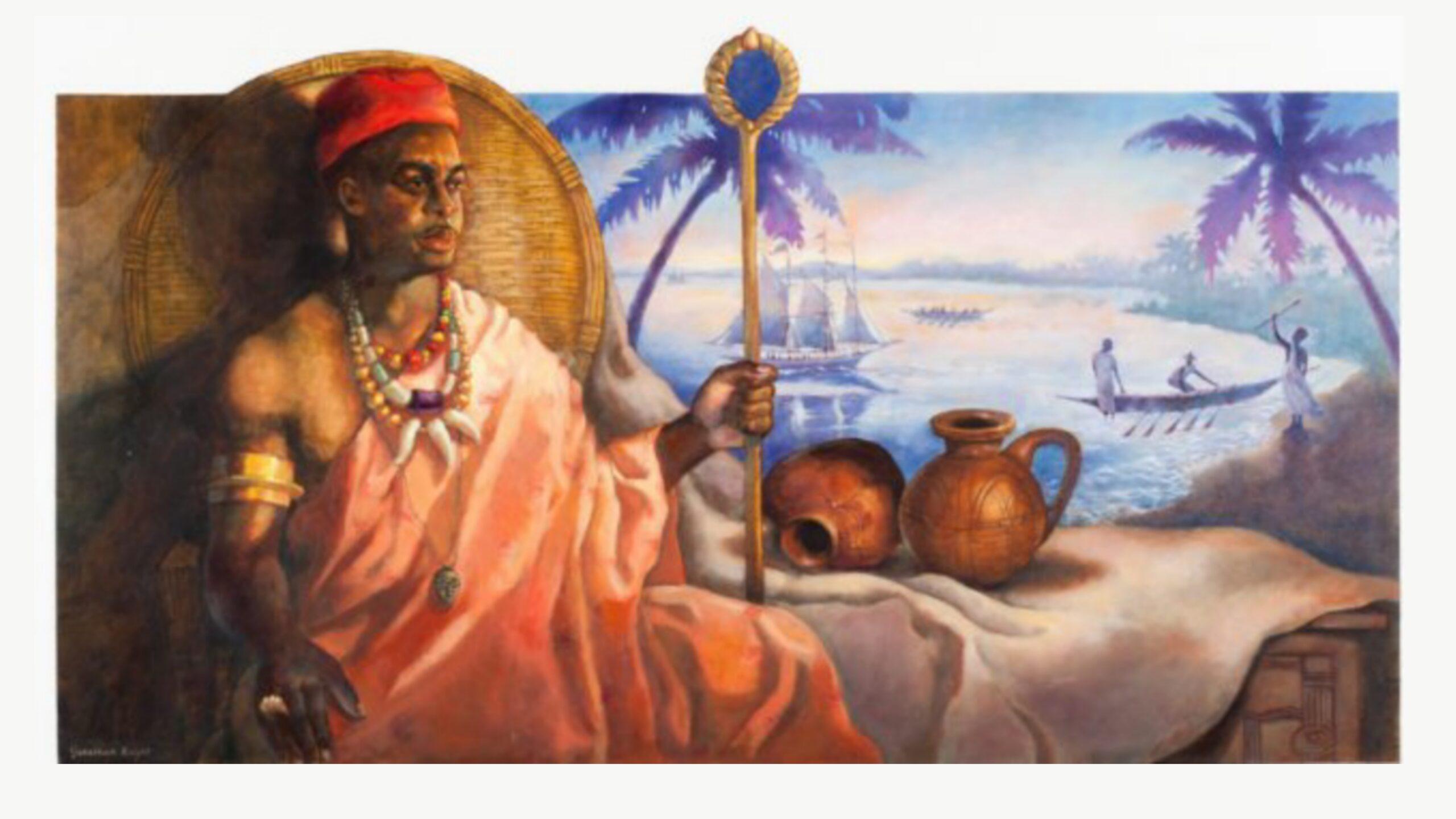King Jaja of Opobo was a merchant prince and the founder of the city-state of Opobo in an area which is now Nigeria’s Rivers state. Born in present-day Imo State’s Umuduruoha Amaigbo, he was sold as a slave in Bonny at the age of twelve by Obua Ajukwu of Oguta, who had come to Bonny to buy slaves. Jubo was born in1821, Orlu, Nigeria and died in 1891, Tenerife, Spain.
He was born in Igboland and sold as a slave to a Bonny trader when he was twelve years old. His first master named him Jubo Jubogha. Later, he was sold to Chief Alali, the influential head of the Houses Group of Opobu Manila. This gifted and enterprising man, known to the British as Jaja, rose to become one of the most powerful men in the eastern Niger Delta.
The Niger Delta
The Niger Delta, where in a system of complex waterways the Niger empties itself into the Gulf of Guinea, was the location of special settlements called city-states.
Bonny, like the other city-states, prospered from the slave trade between the 15th and 18th centuries. A person could gain prestige and power in this society by succeeding in business, and a slave, like Jaja, could work his way up to the position of head of state. The House was the fundamental unit of the city-state and a socio-political structure.

In the 19th century, after the slave trade was abolished in 1807, the slave trade was replaced by the palm oil trade, which was so vibrant that the area was called the Oil Rivers region.
Both the domestic and foreign palm oil trade were regulated by the Houses of Bonny and other city-states because the producers in the hinterland were forbidden to trade directly on the coast with the Europeans; the Europeans never left the coast for fear of malaria.
The rise of King Jaja
Jaja rose to the top of the Anna Pepple House, expanding its activities and power by absorbing other houses, expanding operations in the hinterland, and increasing the number of European connections. A power struggle ensued in the houses in Bonny between rival factions, leading to the breakaway of the Jaja-led faction. Opobo was the name he gave to his new settlement. He assumed the title of King Jaja of Opobo and proclaimed his independence from Bonny.
King Jaja ruled over trade and politics in the delta, as he was strategically positioned between Bonny and the hinterland’s production areas. In doing so, he restricted Bonny’s trade, and by the end of his rise, fourteen of the eighteen houses in Bonny had relocated to Opobo.
He had become so rich in just a few years that he was selling palm oil directly to Liverpool. This condition could not be accepted by the British consul. A treaty of ‘protection’ was offered to Jaja, in exchange for which the chiefs typically surrendered their sovereignty. Following his initial opposition, Jaja was told, although in hazy terms, that neither his authority nor Opobo’s sovereignty would be put at risk.
The fall of Jaja and scramble for Africa
Jaja managed to control trade and levy duties on British merchants to the point that, until one British firm agreed to pay duties, he ordered a cessation of river trade. Facing threats made by the consul that he would bomb Opobo, Jaja declined to comply with the consul’s order to terminate those activities.
Unknown to Jaja, the Scramble for Africa had begun, and Opobo had been assigned to the Great Britain. Tricked into a conference aboard a warship with the British consul, Jaja was captured and sent to Accra, where he was forcibly tried and found guilty of “breaking the treaty” and “blocking the trade highways.”
He was exiled to St. Vincent (Saint Vincent and the Grenadines), the West Indies, and four years later, after being allowed to return, he died en route to Nigeria. Moreover, the discovery of quinine as a cure for malaria allowed British traders to bypass the middlemen and work closely with the producers of palm oil, thus precipitating the decline in the importance of city-states.
 The African History Truly African
The African History Truly African

